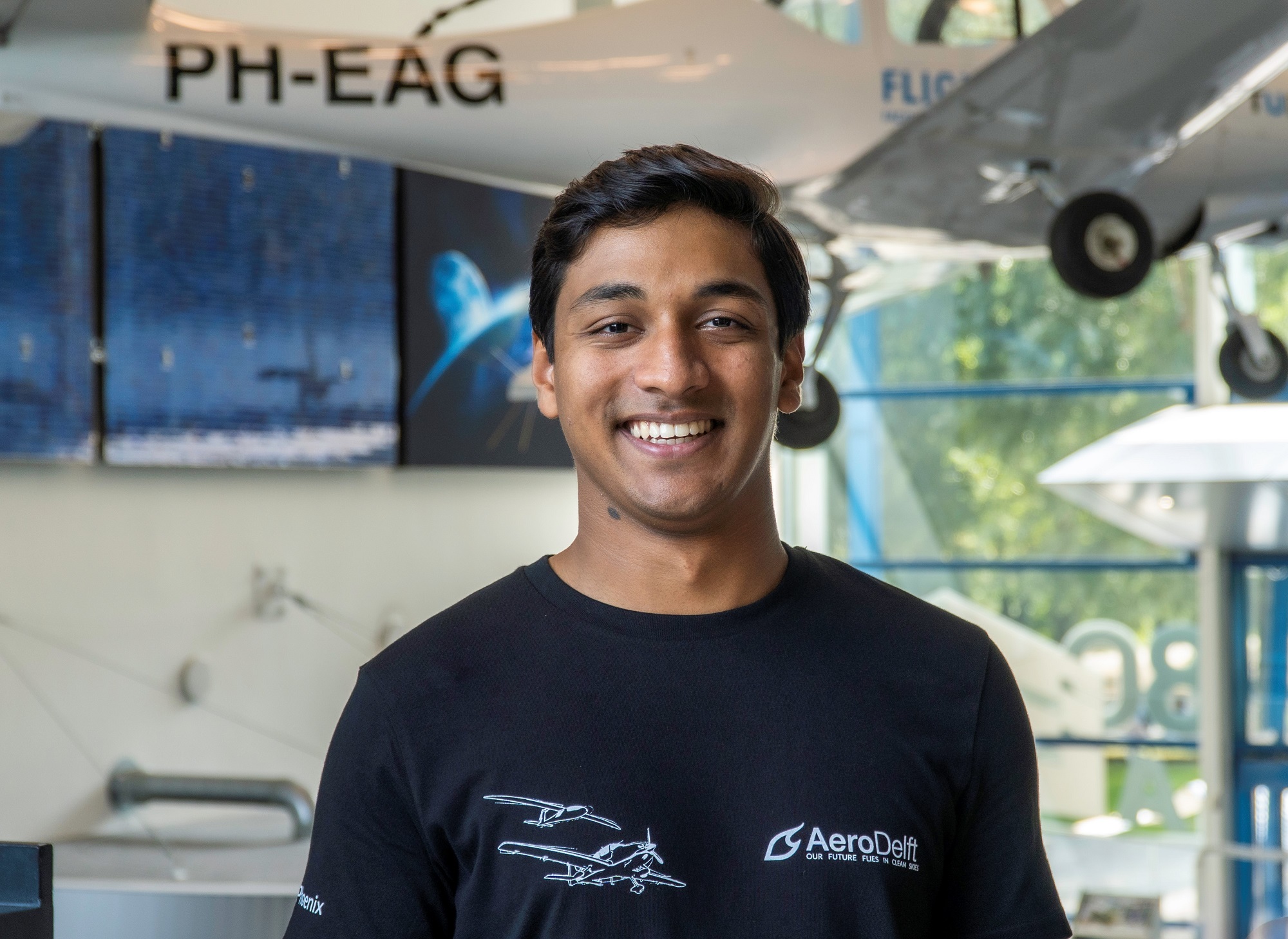With AeroDelft, Aman Singhvi is part of a student team working to make liquid hydrogen-powered flight a reality. The team aims to test their prototype aircraft this year.
Aman Singhvi : “When I graduated, I didn’t want to start a master’s right away but wanted to get some practical experience.” (Photo: Lisa Kroon)
“My parents are originally from India but we moved to the Netherlands when I was pretty young. I have lived here most of my life so I feel like a mix of Dutch and Indian. I went to an international school so I’ve been around a lot of cultures. I just completed my Aerospace Engineering bachelor’s degree and right now I am taking a year off to work full time with AeroDelft. My role is Prototype Technical Manager.
AeroDelft is a student team consisting of 50 people this year and our mission statement is to prove and promote liquid hydrogen as an alternative to conventional fuels in aviation. So the focus is sustainable aviation. When I graduated, I didn’t want to start a master’s right away but wanted to get some practical experience, to touch and feel what I’ve been studying for the last three years and that’s how I came across the team. The role was a good fit for me because you get a good overview of the project as a whole but also have the opportunity to engineer the crux of what’s going on. I was honoured to be chosen for this role and want to do my best to make as much progress as possible on the project.
For the coming year my responsibilities are overseeing the departments for the prototype team and facilitating all of the work that’s being done by the engineers. That means if they need a part, information, or contact with a company, it’s my job to facilitate that and get the help they need. In addition, it’s also part of my job to represent the prototype team at any event, conference or interview. To represent the team well, I have to learn about the crux of the engineering work. The idea is that I also translate that engineering knowledge into a management system. For example, if I know the exact details of the propulsion system I can better plan and ensure that those other parts of the project get completed in tandem, like the electronics and control components or structural parts.
‘This year should really be about flight testing, which is pretty exciting’
AeroDelft actually has two projects. There’s Project Phoenix Full Scale and Project Phoenix Prototype, which is what I work on. It’s a 1:3 scale model glider plane that’s going to run first on battery-power, then on gaseous hydrogen and eventually on liquid hydrogen. Right now, we have the structure done and we’re integrating all of the electronics and control systems into it. Once that’s done, we will put a battery in and start flight testing. We will primarily be checking if the airframe is a good testing bed for the more exciting gaseous and liquid hydrogen flights. After that, we’ll move to integrating the gaseous hydrogen system which has already been developed and tested, and then the liquid hydrogen system. So, this year should really be about flight testing, which is pretty exciting.
One of the reasons I chose to participate in this project was to take some time to look at aerospace from a different angle, a more practical point of view. In the last year and a half with Covid it has been difficult to work up the motivation and passion that I started aerospace with, so I’m hoping to rediscover those things. I plan to pick a master’s track based on what I learn in my role this year and everything I get to see around me. I definitely see myself being involved with some kind of sustainable aviation or sustainability project in the future.”
Want to be featured in Humans of TU Delft? Or do you know someone with a good story to tell? Send us an e-mail at humansoftudelft@gmail.com
Heather Montague / Freelance writer



Comments are closed.